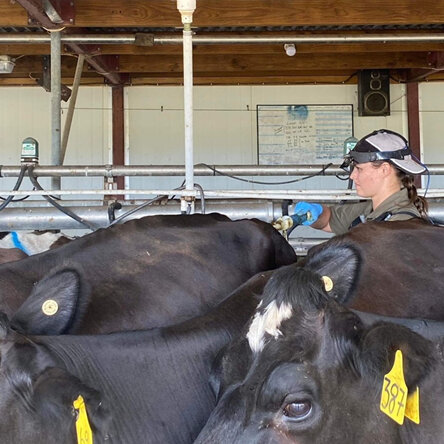Franklin Vets
Franklin Vets - excellence in veterinary care for dairy, farming, lifestyle, equine and household pets. BESTPRACTICE ACCREDITED NZ.
Your account is powered by Storbie. To edit your profile visit my.storbie.com
Your account is powered by Storbie. To edit your profile visit my.storbie.com

Many are aiming for “bang for buck” by putting up cows that are most likely to conceive to the program, these include young cows, early calvers and well-conditioned cows.
We have also seen farms with very good premating heats that are now barely reaching 3-week submission rate targets. Why, you ask? Well, that's a good question and it's definitely got a few of us scratching our heads. It is highly dependent on the farming situation so it may be one to chat to your consulting vet about. But what has been discussed is a multitude of things including the level of effective fibre in the diet, the amount being fed and how this is being affected by grass growth as well as calving spread.
Therefore, because of reduced submission rates on some farms we have seen some farmers respond to this by putting the bull out early. This is not a bad idea as bulls should be catching cows that are having silent heats where she is ovulating but she is not showing obvious signs. These cows are often missed by even the best and most experienced of us and are very common for many cows first cycle of the season, young cows and cows that have mismatched energy balance. The only downside to this is you may not reach your replacement targets come next spring.
The most important point to take away is to set yourself up EARLY for repro season and make a plan. This includes feed budgeting, monitoring BCS, and a plan for later calvers and non-cyclers. Also, it doesn't hurt to follow the old saying “plan for the worse and hope for the best”. Other points to consider include:
Hopefully, if the above wasn't informative it at least made you feel better or gave you insight into where you sit. And if that didn't make you feel better well I won't bother reminding you how close Christmas is away!
Dr Amber Rowan-Sanders BVSc - Farm Vet, Taupiri
Franklin Vets - excellence in veterinary care for dairy, farming, lifestyle, equine and household pets. BESTPRACTICE ACCREDITED NZ.



